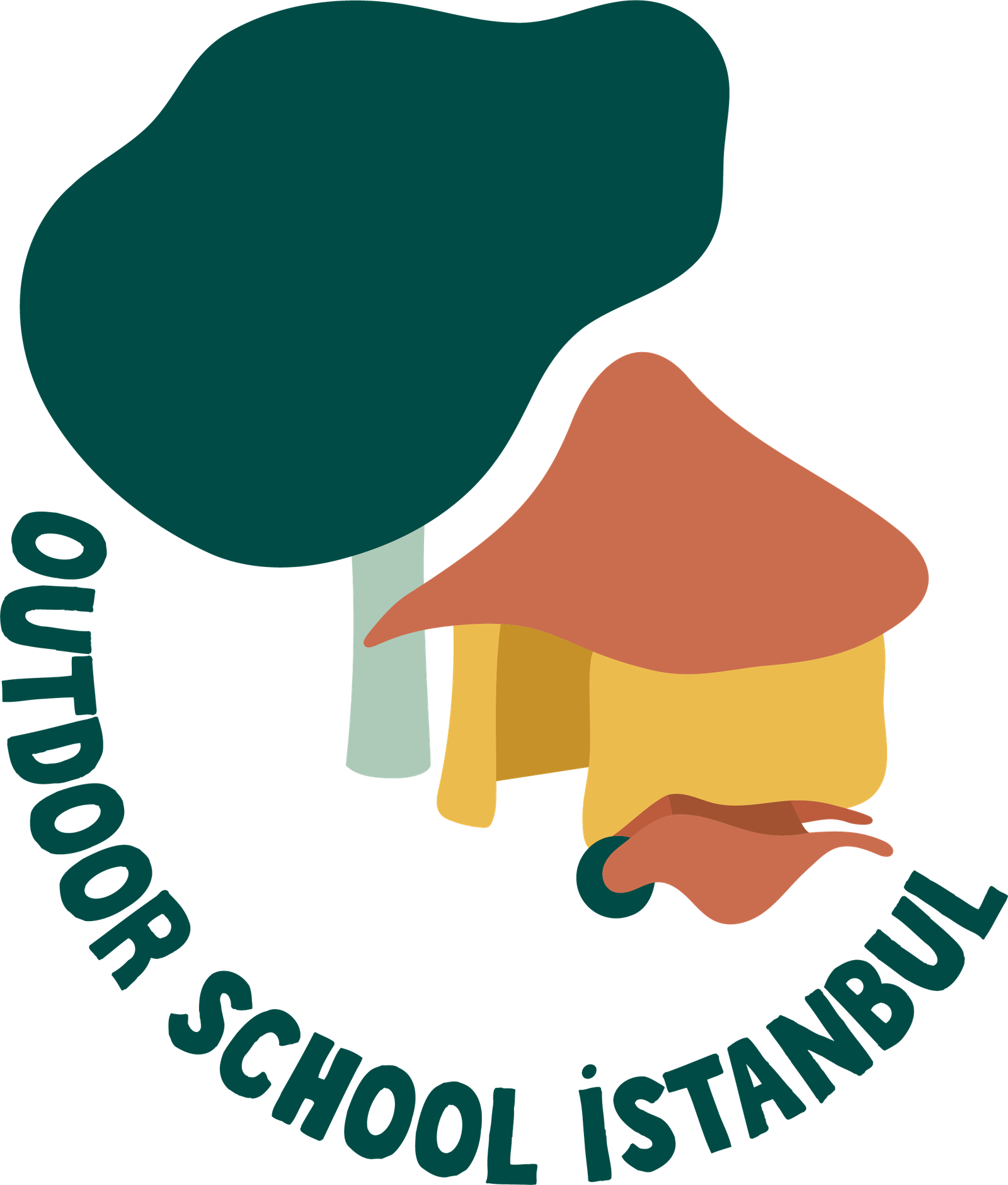Outdoor School
İstanbul
Through Nature’s Choreography, We Discover the World!

Through Nature’s Choreography, We Discover the World!
Imagine children starting their day choosing between free play with friends, feeding animals, collecting eggs, riding bikes, or embracing the day’s surprise—rain, snow, wind or sunshine.
In Outdoor School Istanbul, every day is an adventure rooted in nature! In the heart of the city, our garden flourishes as a vibrant learning space, offering outdoor classrooms that inspire kids to grow holistically.
Here, children engage in activities & projects that spark creative thinking, problem-solving, and reasoning while building social skills, self-management, and self-esteem. Through hands-on experiences and unstructured play, they connect with nature, their peers, and themselves in meaningful ways.
Six years ago, in this very garden, a seed for outdoor learning was planted under the name Early Birds İstanbul. It was here that children began to explore, discover, and connect with nature in ways that nurtured their curiosity and creativity.
As the years passed, that seed grew, its roots deepening in our philosophy of hands-on, nature-inspired and Project-based learning. Today, that same seed continues to flourish, blossoming into what we now proudly call Outdoor School İstanbul.
While the name has changed, the heart of our mission remains the same. Our story is one of growth and transformation.
Please read the article “The Biggest Project: From Early Birds to Outdoor School Istanbul” for more information about our story.
In Outdoor School İstanbul, the integration of outdoor learning and PBL ensures that children don’t just learn facts—they develop skills, build connections, and gain a deep appreciation for the world around them. In Project-Based Learning (PBL), teachers don’t rely on pre-made, fixed programs. Instead, the curriculum is a living, evolving process, shaped by the environment, children’s interests and needs, current challenges/problems, and desired goals. This approach ensures that every learning experience is relevant, meaningful, and tailored to the unique dynamics of each age-group and year.
Each program is a one-of-a-kind journey.
Some possible scenarios:
Problem/Goal/Interest: Kids ask for more physical challenges in the garden
Project-Based Learning can transform this into an opportunity to explore different types of equipment (for climbing, jumping, riding etc.), engage in discussions, vote on a preferred option, collaboratively design and build it, and celebrate their collective achievement.
Problem/Goal/Interest: Sandpit roof is broken
The problem is identified by the kids and can be brought to a school-wide discussion, where they decide whom to consult, seek the help of the “usta,” and actively participate by assisting and observing as the “usta” fixes it, turning the process into a collaborative and educational experience.
Problem/Goal/Interest: A natural phenomenon (flood, earthquake… etc.) happens
When there is a significant topic in the air, PBL allows addressing it openly and thoughtfully, creating a safe environment where the kids can explore, understand, and process it in an age-appropriate way with experiments and discussions to discover precautions to take at school and at home.
In our garden, children are naturally exposed to English and German, creating a dynamic multilingual environment where language acquisition happens effortlessly. The common languages of our school are English and German, and teachers actively communicate and engage with children in these languages, fostering a natural learning experience.
During free play in the garden, you can hear the beautiful harmony of many languages as children communicate and connect in their own unique ways. In the morning program, our English groups use English as their daily language, while the German group engages in German, creating a rich multilingual environment.
In the afternoon program, there is an option to exchange between English, German and Turkish groups (on demand), providing the kids the opportunity to communicate and understand multiple languages.
By experiencing language in real-life contexts, children acquire fluency and confidence naturally, making this an intuitive language acquisition journey.
In OSI, meals are made in our kitchen fresh, using seasonal fruits and vegetables, free from refined sugar, ensuring healthy, natural nourishment for the children.
Each month, the children collaboratively plan their menu, learn about seasonal produce, and visit the local bazaar to shop for fresh ingredients.
What makes it truly special is that the children themselves become active participants in the cooking process. Once a week, the kids take part in cooking sessions, where they prepare their own food and use our earth oven to cook.
Meal times at our school are more than just eating—they are opportunities to learn about the importance of eating healthy food, drinking water and not wasting food. Children are encouraged to serve themselves thoughtfully and to appreciate the effort and resources behind their meals.
If there are any leftovers, the learning continues. Children experience the value of sharing by feeding animals or contributing them to our compost to enrich the soil.
In OSI, it is essential to engage in eco-friendly projects that put sustainability at the forefront of learning. Recycling and upcycling are at the heart of the activities, encouraging creativity and resourcefulness as children transform waste into valuable items.
Through every project and activity, we keep nature in mind—whether it is finding solutions to reduce single-use plastics, creating compost, or designing sustainable alternatives.